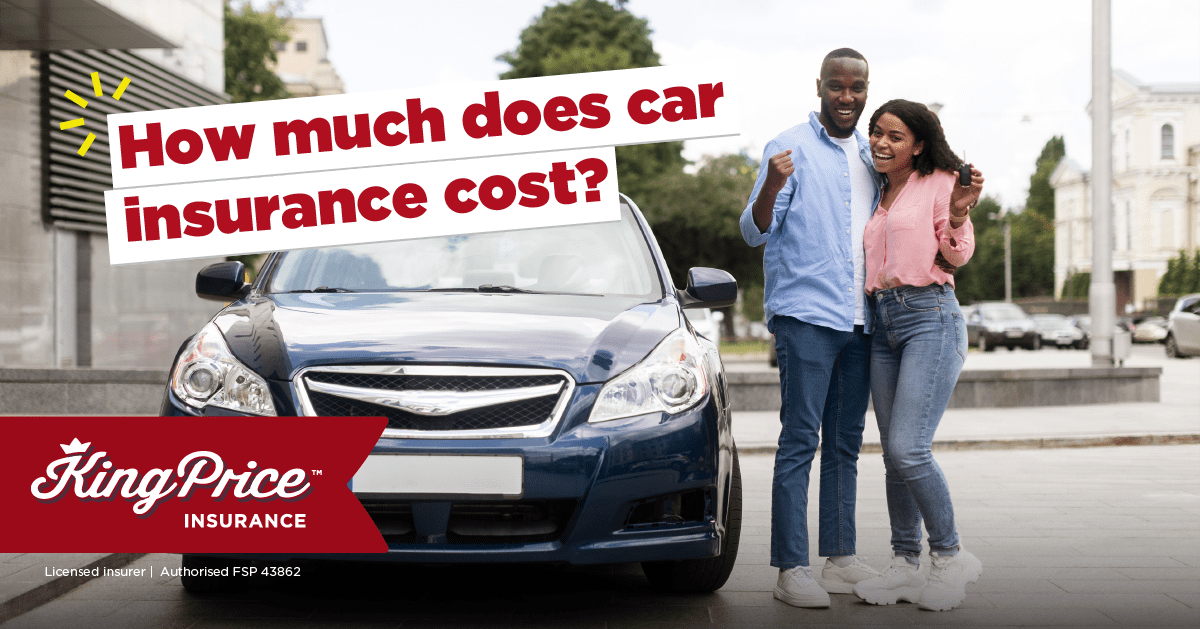How much does car insurance cost?

Did you know that it costs the average South African 39.41% more per month in 2022 to keep a car on the road than it did 5 years ago? To put it in simpler and more horrifying terms, the monthly Rands and cents it cost you to have a car came to R6,711.24 in 2017. This year, it’ll cost you around R9,356.80, which includes the cost of vehicle finance instalments, fuel, running costs, and of course, car insurance.
Understandably, as costs go up, up, up, we’re all hunting for ways to keep our expenses down. First, we’re going to break down how insurance fees are calculated and then we’ll let you in on the best ways to keep your insurance costs down.
The average cost of car insurance in 2022
We got hold of the detailed running costs for a particular type of car (unnamed) to give you a good idea of what you can expect to pay for car insurance on a monthly basis in 2022.
What we discovered is that the average monthly insurance cost comes to R1,322.13 which is handy to know… Kind of. Actually, this amount really doesn’t help you without knowing what type of car is being covered, what type of insurance policy has been selected, and who the policyholder is. Oh, and who the insurer is.
Here are 3 specific examples from our own records:
A 49-year-old woman paid a ridiculously low R385 per month (with R4,500 excess), for her 2019 Hyundai Atos 1.1 Motion.
A 40-year-old man paid an oh-so affordable R530 per month (with R4,500 excess), for his 2019 Suzuki Swift 1.2 GA.
A 34-year-old woman paid a teeny tiny R421 per month (with R2,500 excess), for her 2021 Renault Kwid 1.0 Climber.
How your premium is calculated
Let’s talk a bit more about why the details matter when it comes to calculating the premium that you’ll pay for your cover.
You see, insurance companies in South Africa, us included, take a lot of factors into consideration when creating your policy. Some of this info is obvious, like the make, model, and value of the car itself. You might even suppose that we’ll need to know where you park your car each night, because this speaks to the kind of risks we need to account for when covering your car.
But there are other factors that we rely on, including:
The level of cover you choose: Some policies are more expensive than others, with comprehensive car insurance being the most expensive and third party only being the cheapest.
What you do for a living: If your job involves a lot of driving, then you’ll probably pay more than someone who spends less time on the road, because the risk of being in an accident or some other kind of incident is higher.
How much you drive: The more you drive, the more likely it is that you could be involved in an accident, which is why we make a point getting you to estimate how far you drive on a month-to-month basis.
Your age and how long you’ve been driving: We consider both your age and experience, because neither factor alone paints a complete picture of your specific risk profile. For example, a respectable 38-year-old who’s only had a driver’s licence for 2 years could be riskier to insure than a younger but more experienced 25-year-old who’s had a driver’s licence for 6 years.
Improvements made to your car: Any changes should be reported to us because they could impact your premium. Never fear, though, not all modifications result in higher premiums! For example, if you’ve kitted your car out with an immobiliser, tracking device, or rear sensors, you could end up saving.
The key to keeping your premiums lower
There are a few sure-fire ways of keeping your car insurance premium down:
If you insure 2+ cars with us, you’ll get a 20% discount on your premium. You can even increase your savings by having your buildings and home contents insured with us.
A higher excess can decrease your car insurance premium. You see, there’s a see-saw effect at play when considering the relationship between your premium and your excess. The higher your excess, the lower your premium and vice versa. However, a decision like this should not be taken lightly. A higher excess means that you’ll have to pay a higher once-off amount when you claim from your insurer.
And of course, 1 of the best ways to reduce your premium is to lower your risk/s. Where you used to park on the pavement, it would be great if you could find secure parking for your car behind a locked gate or in a garage. Inform us of upgrades like these, so your premium can be lowered.
If you’re in the market for simple cheap car insurance, just WhatsApp us on 0860 50 50 50 to learn more about our products or click here to get a quick commitment-free quote.






